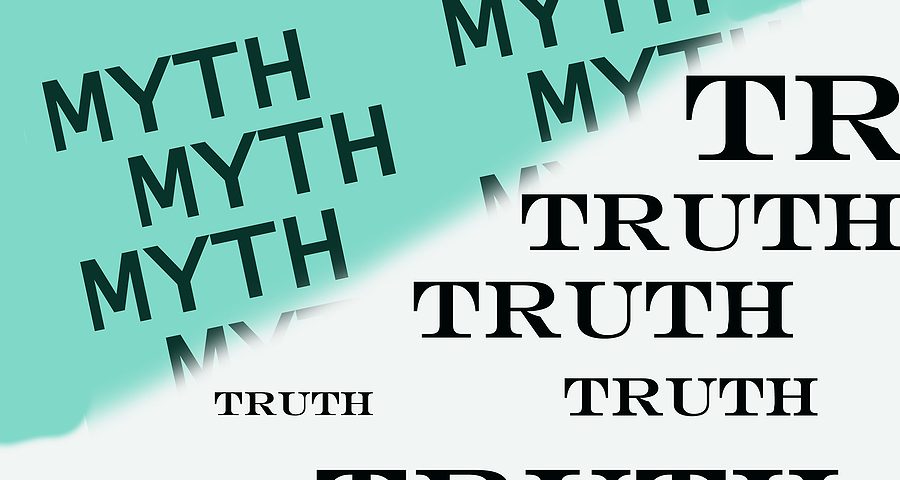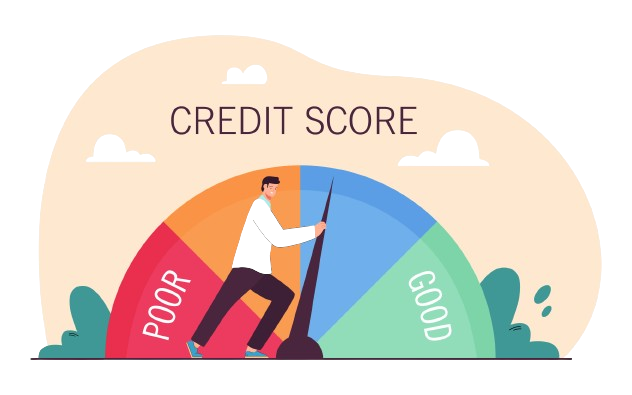- Credit Restoration Experts Nationwide

Credit Terms Glossary
June 27, 2017
The Credit Report Revealed – Part I
June 27, 2017Myths I Believe About My Credit Score

Myths I Believe About My Credit Score
Myth #1 – A Poor Credit Score Will Dog Me Forever.
FACT: Actually, it is important to know that at the moment your credit report is pulled by a creditor, it is considered a “snapshot” of your current financial position in life. Since life is a moving target, so is your financial position. As long as you proactively seek to improve your score, the fact that it is poor at any one given time will not have long term effects on your life.
Remember, as you improve your credit score little by little, your creditors view this as handling your credit in a responsible manner. Your past credit problems impact your credit scores less and less as time rolls on. The more you work to improve your score before applying for credit, the better your “snapshot” will be. Your creditor will see the current snapshot, and make his decision based upon those facts.
Myth #2 – My Credit Score Determines My Ability To Obtain New Credit Lines.
Fact: Your FICO credit score is only one of many determining factors. Each creditor has established their own set of guidelines and rules for extending credit. A creditor will usually require a full application that asks for many things: your income, your employment history, current level of committed expenses, our spending habits, and your credit history. If you falsify any part of the application, you have committed credit raud. The creditor will subjectively review all facts available, and make a decision for or against giving you credit based upon their own review criteria. You may never know what that criteria consists of. Remember, this is not an OBJECTIVE[1] decision. It is SUBJECTIVE[2]. That means that the creditor may make any decision he wishes, except where the law dictates his actions (as in race, color or creed discrimination). So your FICO credit score is only one of many facts that the creditor will consider in reviewing your application and granting credit to you.
Myth #3 – I Can Repair My Credit Myself.
Yes, you can. You can also overhaul your transmission if you know what you are doing. The fact is that most people don’t have the experience, time, or persistence to enforce their rights with the credit bureaus.
Myth #4 – I Use Cash For Everything, So I Have Great Credit.
If you paid cash for everything, you would have no credit history. If you have no credit history, you have no credit! Use of credit is important to developing a great credit score. But you must follow the guidelines for keeping it great, which include: keep your debt-to-credit ration under 30% per card; pay your bills on time; pay every bill; don’t ask for more credit than you can afford.
Myth #5 – I Have A Ton of Credit Cards That I Pay Off Each Month, So My Score Should Be High.
A good credit score is made from the history of charging and paying off. But paying off each month is not the best way to develop a credit history. You need to owe a bit, and pay a bit to develop it.
Myth #6 – If I Apply For New Credit, It Will Drop My Credit Score.
Fact: This is a common misconception. There are several factors that must be considered when applying for new credit.
1) If you apply for several credit cards at once, each occurrence will result in an “inquiry” on your credit report. Each inquiry drops your score about 7 points. So it would be prudent to carefully review the offers you receive and select one or two to apply for. The inquiry shows up on your report regardless of whether or not you are granted credit. But the bigger issue is that all of your creditors see the inquiries, and this indicates to them that their involvement with you may be at a higher risk. Because you are seeking additional credit lines, you may be expecting to spend more money on credit. This can put their balance with you at risk of default. Therefore, there may be negative consequences to frivolously applying for multiple cards within a short time span.
2) If you are trying to purchase a car, and go from dealership to dealership filling out applications at each one within a short time span, each application will result in an inquiry on your credit report. This is usually viewed by your creditors as only one inquiry for the purposes of risk assessment. The same holds true for real estate.
Myth #7 – Minorities Get Short Changed by Credit Scoring.
This is another common misconception, based upon long ago history. ECOA[3] (Equal Credit Opportunity Act) was put into place in 1974 to solve this problem. The law prohibits lenders from even asking the types of questions that would result in bias related to race, color, creed, sex, sexual orientation, and more, as well as people with little or no credit history. The Bureau’s claim that their scoring techniques have proven to be an accurate and consistent measure of the ability to repay loans for all people who have some credit history, regardless of whether they are in the main stream or have a minority history.
Myth #8 – My Privacy Will Be Affected by Credit Scoring.
Privacy issues do not come into play with credit scoring. The application that you fill out to obtain credit is actually more encompassing that the amount of information provided to the credit reporting agencies.
Myth #9 – Information On My Credit Report Cannot Be Changed.
FCRA[4] (Fair Credit Reporting Act) was enacted to be sure that consumers have the RIGHT to correct any misleading, inaccurate, outdated or unverifiable information. Your credit restoration specialist can help you identify the things that need to be removed, and address those issues for you with the credit reporting agencies.
Myth #10 – Credit Bureaus Are Required By Law to Keep Derogatory or Negative Items On My Credit Report For 7 to 10 Years.
There is absolutely no requirement by law that credit bureaus report ANYTHING on you at all. Credit bureaus are private companies that make their income by collecting and SELLING your personal information. This is why FCRA was enacted, so that you can monitor the information and make corrections as necessary.
Myth #11 – Paying Off My Old Debts Will Remove Negative Information On My Credit Report.
Credit Bureaus will most often remove negative credit information that is not verifiable. But it is important the WAY it is requested. You need a credit restoration specialist to assist you with this task.
Myth #12 – A Bankruptcy Will Ruin My Credit For 7-10 Years.
A bankruptcy is a fearsome thing, to be sure. But it also has its place in the financial scene. After two years, the specter of bankruptcy diminishes, as long as your credit payments have been on time since that time.
[1] Objective. (adj) Undistorted by emotion or personal bias; based on observable phenomena. Merriam-Webster Dictionary.
[2] Subjective. (adj) A mental act performed entirely within the mind. Merriam-Webster Dictionary.
[3] ECOA. See full text at: http://ftc.gov/bcp/edu/pubs/consumer/credit/cred15.shtm
[4] FCRA. See full text at: http://www.ftc.gov/e

